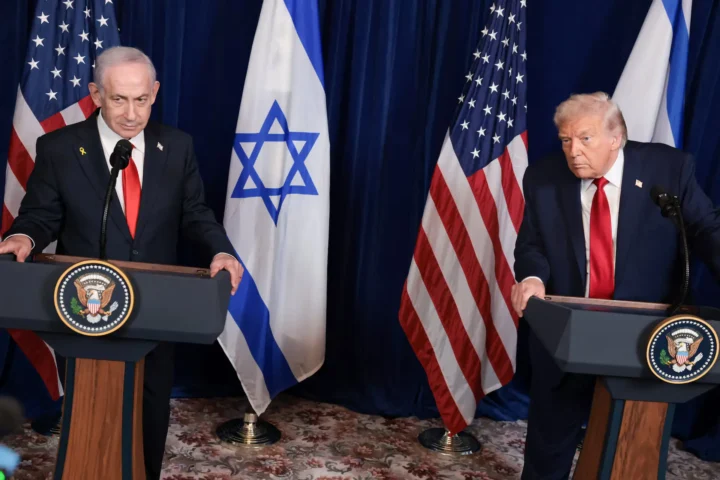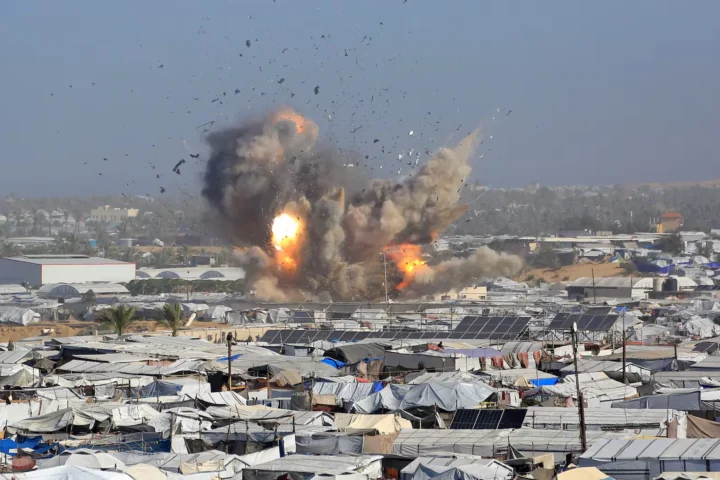The diplomatic spat between India and Canada has spiraled from political theater into dangerous geopolitics, with consequences that stretch far beyond their borders. What started as a Canadian accusation that India’s government was linked to the assassination of Hardeep Singh Nijjar, a Canadian citizen and Sikh separatist, has now taken on alarming dimensions, with Canadian Prime Minister Justin Trudeau doubling down on baseless claims. While these developments are a concern for India, they also pose a direct threat to U.S. security, especially as we head into a critical election cycle. The last thing America needs is a neighbor that risks becoming the “Pakistan of the West” — a breeding ground for instability that threatens the security of the entire continent.
Canada, under Trudeau’s leadership, seems hell-bent on transforming from a stable democracy into a nation entangled in separatist sympathies and international confrontations. While Trudeau’s allegations against India were serious, they remained, at first, within the realm of diplomatic discourse. However, his administration’s escalation has veered into a destructive spiral of politicized attacks and propagandist storytelling. Such tactics are not only reckless but could have far-reaching consequences for U.S. national security and its geopolitical alliances, especially given Canada’s role as a close ally and neighbor.
2/4 When chants like 'Death to Canada' emerge, they directly threaten the safety of all Canadians. This is not just a protest; it's a call for extreme violence against people living in this country, similar to the 'Kill India' posters.#Canada #Canucks #Flames #GoHabsGo
— Ethan 🇨🇦 (@Ethan113554) October 10, 2024
National Security Advisor Ajit Doval’s recent meeting with his Canadian counterpart in Singapore underscored the severity of this crisis. The Canadians, unable to back up their accusations with credible evidence, have instead resorted to unsubstantiated claims that Indian diplomats were involved in gathering intelligence on Sikh separatists and feeding it to criminal gangs. These allegations reek of sensationalism and ignore the realities of how Indian diplomacy operates. What’s more, Trudeau himself claimed to have conveyed the gravity of the situation to Indian Prime Minister Narendra Modi during a regional summit in Laos, but the lack of transparency in Canada’s version of events raises serious questions about its credibility.
For Americans, this situation cannot be ignored. As tensions rise between these two countries, it’s important to recognize that Canada’s increasingly erratic behavior could destabilize North America. Let’s not forget how Pakistan became a breeding ground for terrorism in the late 20th century, with devastating consequences for the U.S. and its allies. Canada risks following a similar path if it continues to provide safe harbor for extremist elements, such as Khalistani separatists, who have long promoted violent agendas against India. This would not only harm India but could also sow instability on American soil, given the porous border between the U.S. and Canada.
Furthermore, as we approach the 2024 elections, the last thing the U.S. needs is a foreign policy crisis involving one of its closest allies. Canada’s increasingly unhinged diplomatic stance could become a domestic issue for American voters, particularly as the nation grapples with questions about immigration, border security, and international relations. If Canada becomes a hotbed of extremist activity or fosters an environment where separatist movements are allowed to thrive under the guise of “free speech,” it will become a liability for the U.S. — a problem too close to home to ignore.
Trudeau’s government has claimed that it respects India’s territorial integrity, yet his actions suggest otherwise. His administration has allowed pro-Khalistani groups to operate freely within Canada’s borders, all under the protection of Canadian laws that emphasize freedom of expression. But history shows that Western democracies, including the U.S., are often willing to curtail such freedoms when their national security is at stake. So why does Canada continue to turn a blind eye to the violent ideologies brewing within its own territory?
The Trudeau administration has not only undermined its relations with India but risks destabilizing the global order. The U.S. must take this seriously and pressure Canada to get its house in order. Washington has a vested interest in ensuring that North America remains a region of stability and security, not a playground for extremist elements. As Canada continues to pursue these unfounded allegations against India, it becomes a weak link in the chain of Western democracies that should stand united against terrorism and separatism.
What should the U.S. do? First, it must engage diplomatically with both India and Canada, urging restraint while simultaneously pushing Trudeau to present real evidence for his claims or drop them altogether. The U.S. cannot afford to stand idly by while Canada pursues this reckless course. Second, Washington should consider the broader implications for its foreign policy in the region. A destabilized Canada, much like Pakistan before it, could become a staging ground for radical elements that threaten not only India but the entire Western hemisphere.
In this critical moment, as we approach the 2024 elections, the stakes are higher than ever. The U.S. cannot afford a security threat on its northern border, especially when it stems from an ally’s misguided political gamesmanship. Canada must choose: Does it want to remain a responsible member of the global community, or will it risk becoming a rogue state, consumed by separatist sympathies and reckless diplomacy?
Trudeau’s dangerous gambit isn’t just an issue for India. It’s a warning sign for America — one that should not be ignored. The U.S. must act swiftly and decisively to ensure that Canada does not become the Pakistan of the West. The consequences of inaction could be dire.











